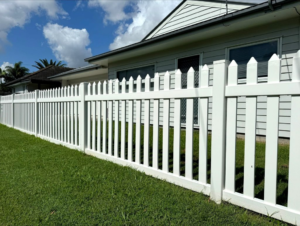Fence is a great sport for anyone who wants to improve their hand-eye coordination and their mental skills. The sport also offers many health benefits that can help improve your quality of life.
Microsoft AI for Good Lab researchers have trained a computer to identify fencing in aerial images of southwestern Wyoming, an important habitat for migratory pronghorn and mule deer. They are hoping to use the system elsewhere. Contact R.C Fence LLC now!

Despite the fact that it’s often overlooked, mental wellbeing is just as important as physical health. Practicing exercises to train the mind will not only boost your emotional health, but can also improve cognitive function and reduce stress levels. Exercises include guided imagery, which uses your imagination to transport you to a relaxing location, progressive muscle relaxation, in which you tense and release different muscles from your toes to your head, and cognitive reframing, which helps you change negative thinking patterns into more positive ones.
Social Interaction
Social interaction is an important part of the human body and mind. People who are socially isolated tend to suffer from mental degeneration and lower cognitive ability as they age. People who lack social interaction may also suffer from depression and anxiety disorders. Social interaction can be created through various means, including verbal and non-verbal communication. Non-verbal communication can include hand gestures, eye contact and eyebrow movement. Verbal communication can include speaking to others or writing. In addition to verbal and non-verbal communication, social interaction can also involve competition or conflict.
In crime studies, fence is a term that describes the practice of dealing with stolen goods. Fences act as go-betweens between thieves and buyers of stolen property who may or may not know that the goods are stolen. The role of the fence is crucial to stealing operations because it allows thieves to sell their goods without being caught by law enforcement. Traditionally, fences have operated in the black market, but more recently have moved into the legal marketplace through e-fencing.
The occupation of a fence was often a stepping stone for young criminals, particularly in England in the 18th century. In fact, a character in the novel “Oliver Twist” was a fence named Fagin who recruited homeless boys to work as pickpockets for him. Most fences were poor people who took whatever jobs they could get to make ends meet, both legal and illegal. Some specialize in specific types of goods. For example, some fences acted as itinerant barbers who amassed information about places where criminals might hide and individual thieves. This information was then sold to criminals in search of a hiding place or powerful clients who wanted to steal from their opponents.
Theories that explain social behavior by focusing on the brain as a prediction machine often run into the problem of circularity, in which each person attempts to predict the actions of another. This paradox is a particular issue in the context of social interaction because the individuals involved are mutually interdependent. For example, if A puts a book in the trash, B will probably agree that it was an insult to the author of the book, A.
Self-Defense
Whether you’re fighting back against an attacker with punches and kicks, or you’re using verbal deterrence to defuse a situation before it escalates, self-defense is an important skill. It is a crucial component to the health of your body and mind, and it’s something that everyone should learn in order to feel more empowered.
Regular close-quarter protection training sessions can give the body a good workout, especially for delegates who are taking the course as part of a martial arts club or other total-body fitness class. In addition, it can help people become more flexible as they work to bend and dodge attacks, making them more agile in other physical activities.
The discipline that is required to take self-defense classes also strengthens mental resilience. The heightened awareness that comes from practicing self-defense techniques helps to keep the brain sharp and focused in high-stress situations, enhancing decision-making. This heightened awareness translates to life outside of the self-defense classroom, giving people the ability to remain calm and think clearly under pressure in all situations.
It is important to note that the law allows individuals to use force in self-defense but there are some legal boundaries that they must follow in order to not be criminally liable for their actions. For example, they must genuinely believe that the force is necessary to protect themselves from imminent harm or danger. Furthermore, the force must be both objectively and subjectively reasonable under the circumstances at hand. Lastly, if they provoked the initial confrontation, they may not be able to claim self-defense.
Knowing that you can defend yourself is empowering, and it helps to relieve stress by taking the fear out of potentially dangerous situations. By reducing anxiety, it can also increase confidence, which can improve the overall quality of life. Ultimately, it’s an investment in oneself that pays dividends well into the future. It’s a great addition to any person’s personal and professional development, and it should be considered an essential skill in the modern world.